Publications
Articles, publications, books, tools and multimedia features from the U.S. Institute of Peace provide the latest news, analysis, research findings, practitioner guides and reports, all related to the conflict zones and issues that are at the center of the Institute’s work to prevent and reduce violent conflict.
Question And Answer
Amid a Changing Global Order, NATO Looks East
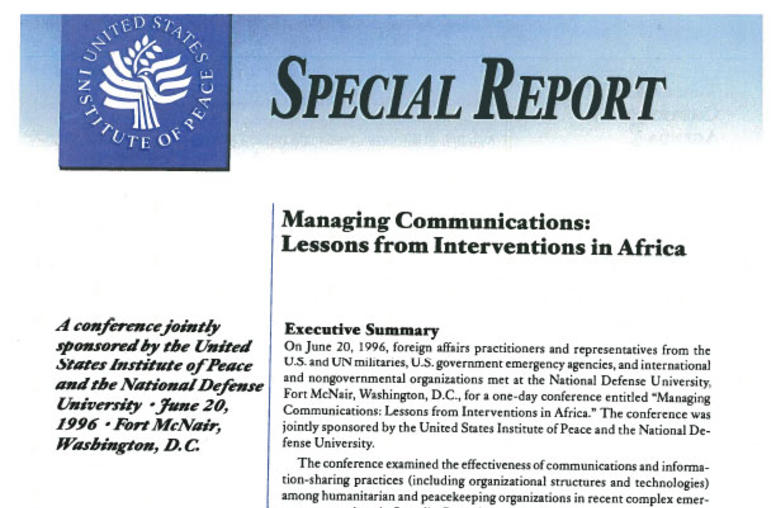
Managing Communications: Lessons from Interventions in Africa
"Managing Communications: Lessons from Interventions in Africa," the conference was jointly sponsored by the United States Institute of Peace and the National Defense University. It examined the effectiveness of communications and information-sharing practices (including organizational structures and technologies) among humanitarian and peacekeeping organizations in recent complex emergency operations in Somalia, Rwanda, and Liberia.
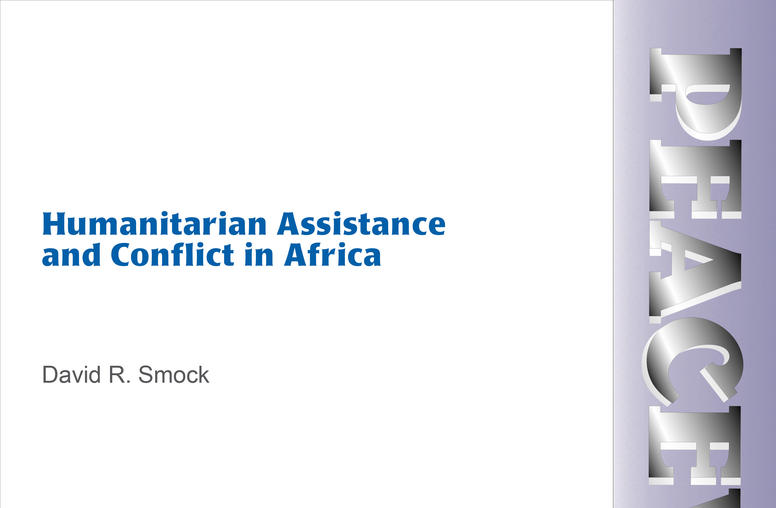
Humanitarian Assistance and Conflict in Africa
The good work of nongovernmental organizations (NGOs) in recent conflicts in such countries as Somalia, Haiti, and Bosnia is well known—providing food, shelter, medicine, and a host of other materials and services under extremely difficult conditions. But does humanitarian assistance in some cases actually exacerbate conflict?
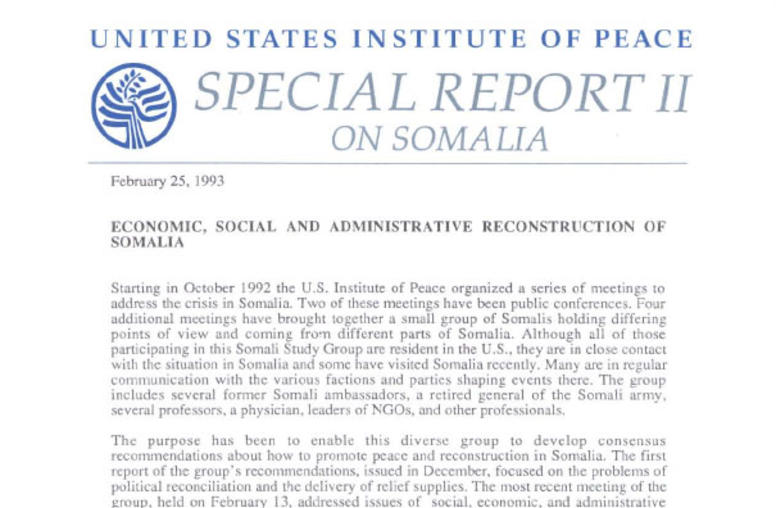
Economic, Social and Administrative Reconstruction of Somalia
Starting in October 1992 the U.S. Institute of Peace orgnized a series of meetings to address the crisis in Somalia. The meetings included several former Somali ambassadors, a retired general of the Somali army, several professors, a physician, leaders of NGOs, and other professionals.
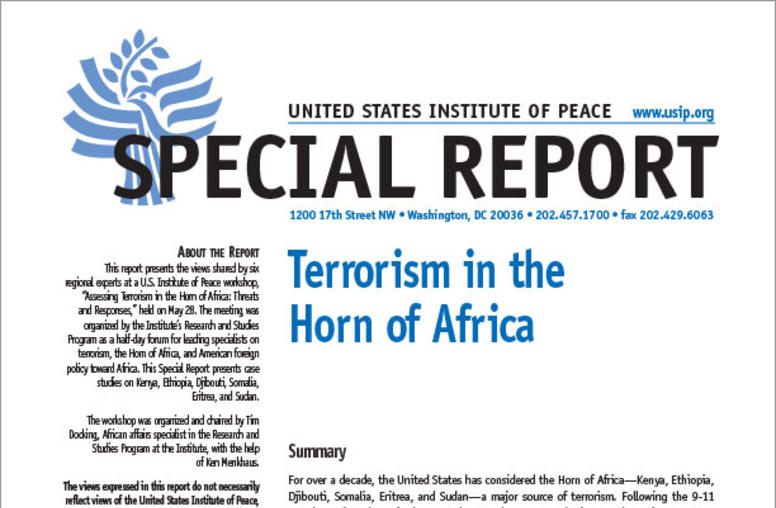
Terrorism in the Horn of Africa
Summary For over a decade, the United States has considered the Horn of Africa—Kenya, Ethiopia, Djibouti, Somalia, Eritrea, and Sudan—a major source of terrorism. Following the 9-11 attacks against the United States, the Horn has come under increased scrutiny as a strategic focal point in the war against terrorism. In May 2003, the Kenyan government admitted that a key member of the al Qaeda terror network was plotting an attack on western targets, confirming al Qaeda's firm local ...
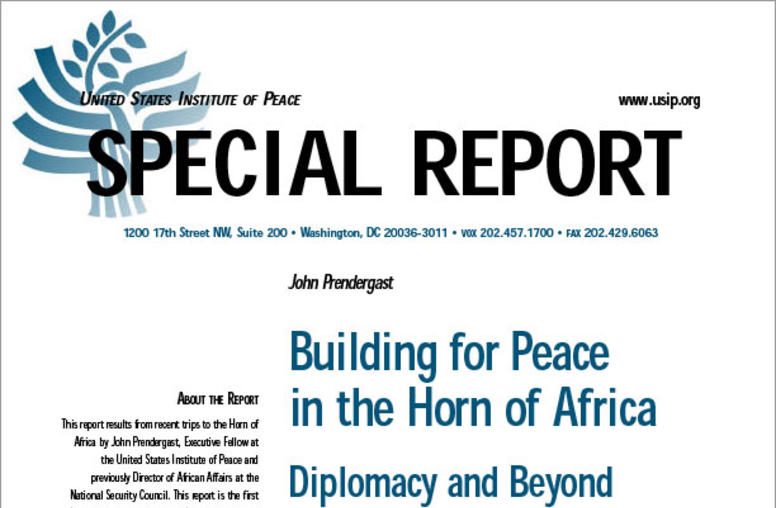
Building for Peace in the Horn of Africa: Diplomacy and Beyond
Summary Already the deadliest conflict cluster in the world, the Horn of Africa has exploded again because of the intensification of the once-improbable Ethiopia-Eritrea war. Support by Ethiopia and Eritrea for proxy militias in Somalia has reignited the Somali civil war and threatened the south with renewed famine.

Music, Poetry, Film: Shoring Up Identities for Peaceful Ends
A Somali master poet reconnects citizens to their government. A Lebanese filmmaker collects fighters' stories to dramatize the cost of war. Police in Northern Ireland adopt symbols of peace to signal a new ethos. In places simmering with long-standing social tensions and alienation, common cultural understandings can help ease hostility, suggesting a potentially powerful role for a mechanism still under-used in peacebuilding: the arts.
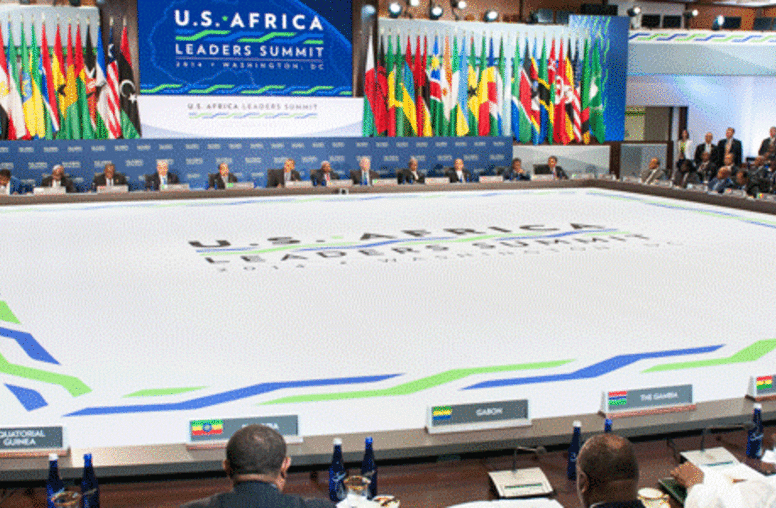
U.S.-Africa Leaders Summit: What Did It Achieve?
Two months after the White House invited 50 heads of state to Washington for the first U.S.-Africa Leaders Summit on Aug. 4-6, observers on both continents are asking, “What did the summit achieve, and how will any gains made be leveraged?” USIP asked several prominent Africans who have worked with the Institute over the years for their reflections.
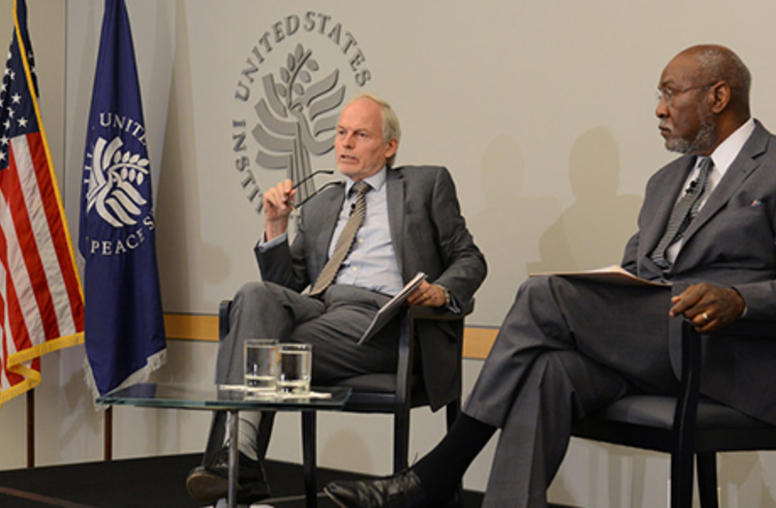
U.N. Envoy Warns Somalia Progress Is In Peril without Stalwart Support
United Nations Special Representative Nicholas Kay warned that the significant progress Somalia has made in the past two years could be in peril if the international community does not remain engaged and fails to continue humanitarian aid and support for African Union peacekeepers.
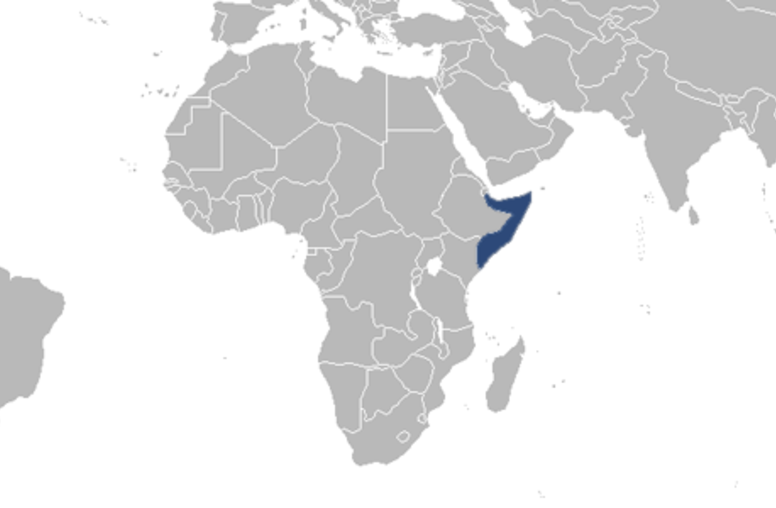
Somalia’s Federal Agenda May Get Boost with New Regional President
The third presidential election in Somalia’s semi-autonomous state of Puntland has brought about a change in leadership that might help enhance stability in the Horn of Africa. While it is too early to predict how the shift will ultimately play out in the region, the election of Abdiweli Mohamed Ali Gaas may prove a crucial catalyst for Somalia’s stalled process toward federalism.
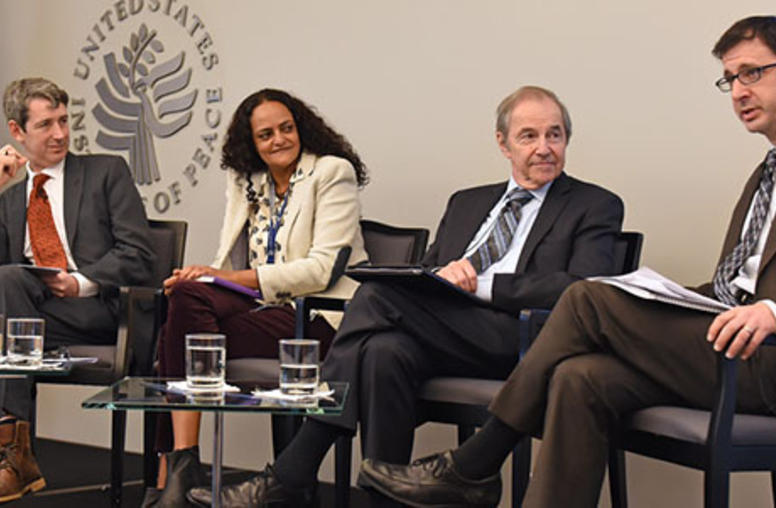
Patronage and Peace in the Horn of Africa
Peacebuilders in the Horn of Africa and across the larger Middle East are likely to get better outcomes with a greater understanding of the region’s “political marketplace,” where loyalties based on financial and economic means seem to create more stability than classic institution-building, according to Alex de Waal, executive director of the World Peace Foundation and a professor at Tufts University. But rather than succumbing to illegitimate patronage, some experts say the answer may lie i...